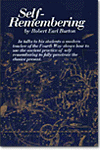|
|
Twenty-five years ago, Robert Earl Burton
founded the Fellowship of Friends, a school of
spiritual development in the Fourth Way tradition,
which has been transmitted in this century by G.I.
Gurdjieff and P.D. Ouspensky. A Greek-Armenian
mystic and teacher of sacred dances, Gurdjieff
rediscovered the Fourth Way tradition during long
travels in the East, which provided the inspiration
for his book, Meetings with Remarkable Men. He is
perhaps best known for Beelzebub’s Tales to His
Grandson. Gurdjieff’s principal disciple,
Ouspensky, became a teacher in his own right, and
recorded the Fourth Way ideas in a series of
clearly written and elegantly reasoned works, among
which are The Fourth Way and In Search of the
Miraculous, both published after his death in 1947.
Because the Fourth Way is based on individual
verification and understanding, as well as on
personal transmission, each teacher reinterprets it
anew. Robert Burton’s teaching, while based on the
knowledge transmitted by Gurdjieff and Ouspensky,
has expanded to embrace the legacy of spiritually
developed men and women of all ages and cultures,
from Marcus Aurelius and St. Paul to Lao Tzu and
Abraham Lincoln. Gurdjieff approached the Fourth
Way through the rigorous physical training of his
sacred dances, and Ouspensky emphasized an equally
rigorous intellectual discipline. Robert Burton
stresses the education and disciplining of the
emotions. The unique qualities that he offers to
his students include a love of beauty and an
understanding of its capacity to create higher
states of awareness, a non-judgmental acceptance of
people and events as they are, and a profound
humility and obedience in the face of a higher
intelligence. “If I had three wishes,” he once
said, “they would be, ‘Thy will be done, thy will
be done, thy will be done.”
Perhaps Robert Burton’s greatest contribution to
the Fourth Way tradition is his unerring ability to
grasp the core of the teaching. Although the system
offers an array of theories, he has resisted all
temptations to deviate from its highest
application: the creation of higher consciousness
within its students. He has never ceased to repeat
that this work is simple, although it is not easy.
Out of the great storehouse of knowledge in the
Fourth Way, he has extracted and exalted two
principles above all others: self-remembering and
the transformation of suffering.
Self-remembering is the attempt within a
specific moment to be more conscious, more aware,
more present. It is a form of active meditation
that may take place in any moment and in any
situation, in which the student works to be aware
both of himself and of his environment
simultaneously, rather than being immersed in his
internal world, or lost in his reactions to the
many stimuli around him. Repeated efforts to
self-remember lead to higher states of
consciousness, and a quite new understanding of
humanity’s place in the universe. This private,
internal struggle to witness one’s own life is the
process through which one creates one’s soul.
Tirelessly, tenaciously, Robert Burton has
placed self-remembering at the heart of his school.
Although he has urged his students to experience
the best that life can offer and to develop their
own talents and skills, he has never lost sight of
the fact that even great genius pales before simple
consciousness; that, as he has said so often,
“There is no greater activity than presence in
silence.”
The transformation of suffering entails learning
to use each negative or painful experience or
emotion, whether large or small, to create
self-remembering. This process requires long work
on changing attitudes, so that the student
understands that the ultimate responsibility for
any negative emotion - such as anger, irritation,
fear, and self-pity - rests with the individual
rather than the events that befall him.
“Everyone suffers, with or without a school,”
Robert Burton has said. “We are trying to use our
suffering, rather than being used by it.”
Year after year, Robert Burton’s students have
come to him with their questions, their problems,
their protests. Year after year, with unfaltering
patience, he has taught that the only true
solutions to any perceived “problem” lie in our
efforts to self-remember and to transform our
suffering. However justified one’s complaints,
however unjust the events of one’s life, one has no
choice but to embrace them all. This wider
acceptance is the key to the actual transformation
of negative emotions into higher consciousness,
which creates the capacity for selfless love and is
the true meaning behind every spiritual teaching.
What the individual gains through this process may
then be radiated outward for the benefit of others.
“There is a secret,” Robert Burton said once, “that
is almost too sacred to tell. The secret is: what
one gains, all gain.”
In the years since its founding, the Fellowship,
which is based in northern California, has slowly
and quietly grown to include approximately two
thousand members in teaching centers around the
world. It is sincerely hoped that this book will
not only serve as a record for Robert Burton’s
students, but will introduce others to their own
spiritual possibilities.
J. Chapman
Top
of page
© Copyright Fellowship of
Friends 2001 - All rights reserved.
|
|

York
Beach, Maine: Samuel Weiser, 1995.
You can
order this book online at Amazon.com.
|